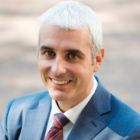Philanthropy back to the drawing board

What follows is the foreword to the book “Philanthropy Back to the Drawing Board” by Rien van Gendt, published on 9 October
It’s a demanding and confusing, if not dramatic time in which we are living, and our capacities to react to the challenges at hand are being tested in new ways across the globe. Europe – its institutions and people – must rethink its direction and role in the new world. And so must philanthropy. The future is heading towards us ever faster, and lessons of the past no longer provide the answers needed to respond to today’s challenges. Europe is confronted with war at its eastern borders; rising social, demographic and regional inequalities; and the mainstreaming of political populism. Humanity is threatened by accelerating climate change, and artificial intelligence seems to present equal parts danger and opportunity. In this difficult context, we subscribe to the words of European Union co-founder, Robert Schuman, that the future can only be safeguarded by making creative efforts proportionate to the challenges which threaten it.
In this light, “Philanthropy Back to the Drawing Board: Shaping a Future Agenda” certainly comes at the right time: Rien van Gendt urges foundations to reflect on why and how they, too, can generate the most creative efforts proportionate to the challenges of our times. He asks philanthropy to critically and reflectively assess how it can best live up to the promise it makes – and the responsibility it has – of investing private resources for the public good. The book is a well-informed invitation to reflect, challenge, rethink and reorganise philanthropic action that makes sense and makes a difference.
Rien does not shy away from difficult questions such as mission-compatible portfolio investment, whether foundations should exist forever, and whether new is always best. He also addresses the virtue, challenges, opportunities and urgencies of European philanthropic cooperation. Those operating in the sector directly or around the edges of philanthropy – be it in government, business, academia or civil society – will learn much from this book, which sheds light on the often still opaque questions the sector grapples with and helps to map pathways towards answers.
From our perspectives as the leaders of three diverse organisations within the European philanthropy sector – an Italian foundation with a centuries-long history; a Europe-born and Europe-focused foundation; and a European-level philanthropy infrastructure organisation – certain notes in the book particularly resonate with us.
First, Rien captures very well the complexity and diversity of the sector, embracing the richness that these bring to European philanthropy. Every country has its own specific, often heterogeneous, philanthropic styles and institutions – though these are mostly known as foundations. Religion, civic history, the economy and the features of the state’s role all contribute to such diversification.
However, philanthropy as a social practice has common traits everywhere. We strongly believe that a common understanding of philanthropy and of philanthropic culture, especially in Europe, can be beneficial not only to the sector but to society at large. As far as an “internal culture” goes, there is a lot to be learned about the “trade” of philanthropy – its tools and duties – and this generally happens through exchange, dialogue and friendly mutual criticism among foundations. There is also an “external” culture, meaning the way philanthropy positions itself and takes responsibility towards the social environment in which it is embedded and the causes it aims to serve. This external culture is mirrored by how the public and other societal institutions – mainly in the world of politics – perceive philanthropy; and to what extent they want to cooperate with it and recognise the liberty a healthy and effective philanthropy sector requires. In this book, Rien speaks to these aspects and more of both internal and external common cultures.
Second, the book discusses the lack of philanthropy with a genuine European purpose. Politically, economically and culturally, Europe has grown strong institutions and infrastructure: the European Union, the European Central Bank, the Erasmus Programme, Eurovision and the Champions League. However, aside from a handful of examples, philanthropy with an explicit European purpose remains uncharted territory. The book demonstrates how relevant and urgent it is to unlock the potential for Europe of the estimated €60 billion spent annually by foundations – exploring new forms of investments and partnerships for the public good; innovating governance and financing models; and delivering greater impact together.
Finally, the journey that this book encourages philanthropy to undertake aligns with the important mission of philanthropy infrastructure organisations. As outlined in the book, the environment in which foundations operate has become increasingly challenging over the past decade, and the role of infrastructure bodies – both at national and European levels – in advocating for and connecting the sector, as well as in building and empowering the philanthropic community, is becoming ever more relevant. Philanthropy infrastructure organisations can use the book as a travel guide to help the sector navigate this urgent and important journey of self-reflection and re-assessment. The book can play the roles of benevolent challenger and critical friend in asking the bold questions that need to be asked, and finding responses that work for philanthropy, and for society.
Our three organisations are happy to support this book as a highly relevant resource for those who want to understand philanthropy better and engage in an intelligent discussion of the challenges foundations face. As one of the most astute and experienced practitioners and analysts in philanthropy, both European and global, there is no one better placed than Rien van Gendt to author such a book. Written with an authoritative yet inviting voice, “Philanthropy Back to the Drawing Board” encourages every reader to define their own future agenda for philanthropy.
Authors



